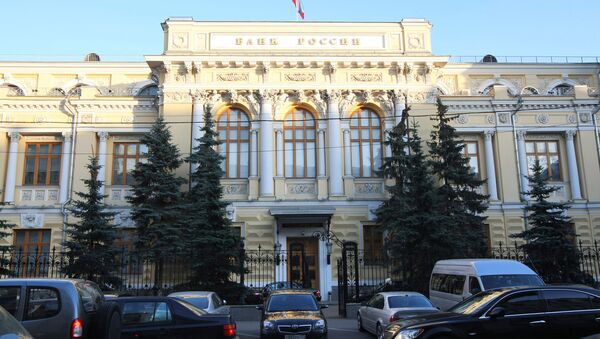The Russian government has injected about 1 trillion rubles ($33 billion) into domestic banks in the 15 months since the global financial crisis hit the country in 2008, a government official said on Thursday.
Russia, which receives a large part of its revenue from oil exports, was hit hard by the global financial crisis, prompting the government to take urgent measures to save the banking sector from collapse, extending direct and subordinated loans to major banks, most of them held in private hands.
Mikhail Sukhov, director of the Central Bank's department for licensing and financial recovery of credit institutions, said government aid accounted for 72% of all investment in banks' equity capital, including subordinated loans.
As of the end of last year, bank's equity grew to 4.6 trillion rubles ($153 billion), including 810 billion rubles ($27 billion) injected in 2009, of which government aid totaled 389 billion rubles ($12.9 billion), Sukhov told a Moscow conference on mergers and acquisitions.
Sukhov said the government would not make large-scale investment in the equity of banks for their recapitalization now that the financial situation had stabilized.
Central Bank First Deputy Chairman Alexei Ulyukayev said on Wednesday that while a second wave of economic crisis was unlikely in Russia, the country was braced for a long period of recovery after the global financial meltdown.
Ulyukayev said the Russian government was already curtailing anti-crisis measures as the country had started to exit the recession from the third quarter of 2009, but was acting cautiously to stimulate economic growth that was still fragile while also guarding against new financial bubbles.
MOSCOW, March 4 (RIA Novosti)


